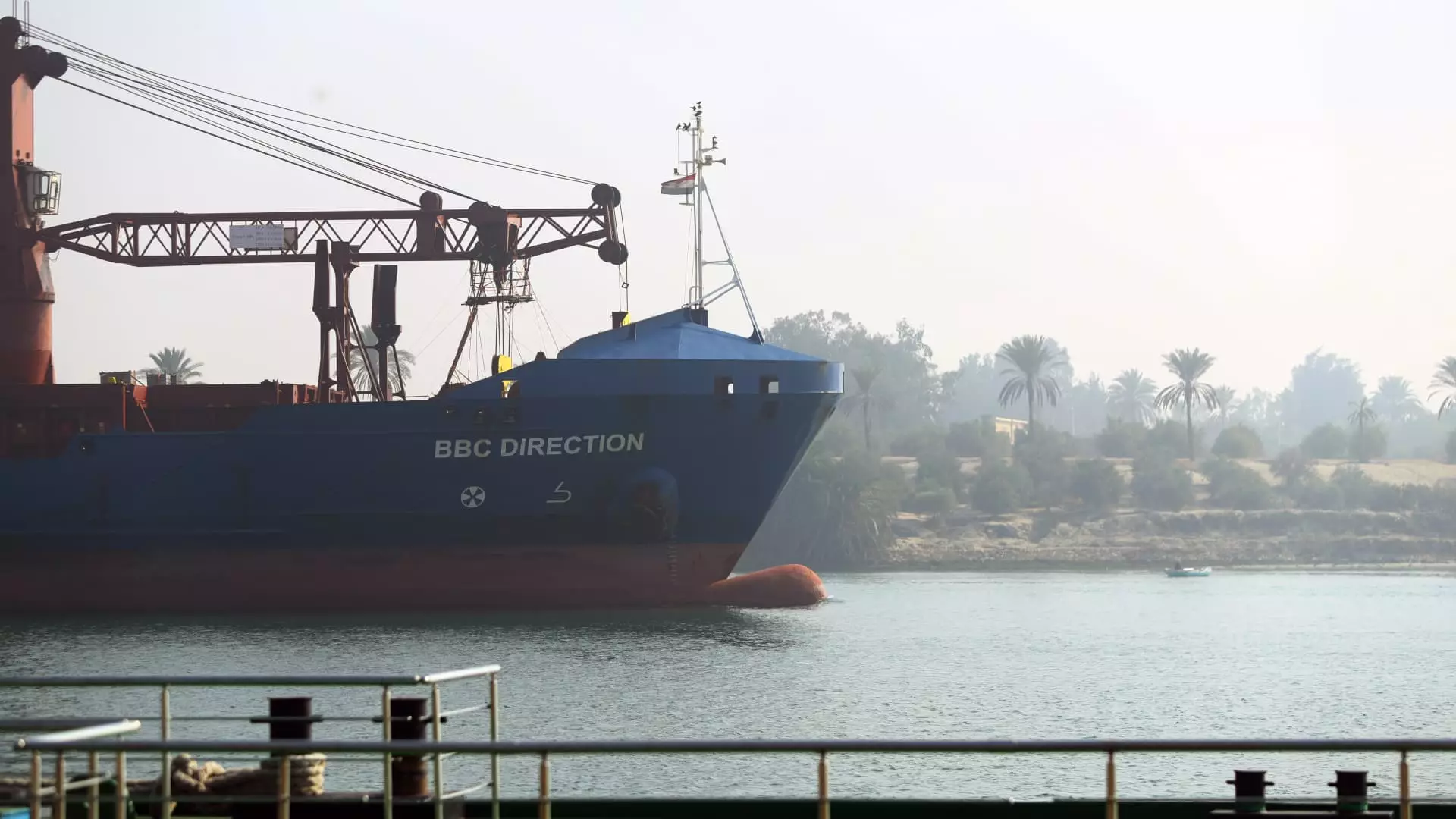The Red Sea has become a hotbed of attacks by Iran-backed Houthi militants, leading to significant disruptions and potential price increases in global trade. With over a dozen vessels falling victim to these attacks since the start of the Israel-Hamas war in early October, major shipping lines and oil transporters have suspended their services through the Red Sea. The impact on global trade cannot be ignored, as these ocean carriers collectively represent approximately 60% of global trade. The urgency to protect ships in the region has prompted the United States along with other countries such as the United Kingdom, Bahrain, Canada, France, Italy, Netherlands, Norway, Seychelles, and Spain to create a new force.
In response to the attacks, several prominent shipping companies such as MSC, Maersk, Hapag Lloyd, CMA CGM, Yang Ming Marine Transport, and Evergreen have announced the immediate diversion of all scheduled journeys to ensure the safety of their seafarers and vessels. Unfortunately, this redirection comes at a cost. Evergreen has taken the additional step of temporarily suspending its shipping service to Israel, which accounts for approximately 30% of Israeli imports that pass through the Red Sea. This suspension poses challenges for importers who rely on timely deliveries, as extended voyages and increased uncertainties will result in higher costs and potential losses in their markets.
The Red Sea attacks have not spared the oil industry, as oil giant BP has decided to temporarily pause all transits through the Red Sea due to the deteriorating security situation. This move aims to prioritize the safety and security of their personnel and those working on their behalf. BP’s cautious approach will remain under review as circumstances in the region evolve. Another notable oil tanker group, Frontline, is also avoiding the Red Sea. The consequences of these disruptions are already surfacing, leading to higher ocean freight costs. In fact, since the beginning of the Israel-Hamas war, the Asia-U.S. East Coast prices have risen by 5% to $2,497 per 40-foot container. The situation could worsen as major companies avoid the Suez Canal, opting for a longer route around Africa to access the Indian Ocean. This alternative route adds up to 14 days to shipping routes and incurs higher fuel costs, resulting in delays and a perceived “vessel capacity crunch.”
Delays in container and commodity deliveries are inevitable with the ongoing disruptions in the Red Sea. Container shipping alone accounts for almost a third of all global shipping, with goods valued at around $1 trillion transported annually. The extended time spent on alternative routes is expected to absorb 20% of the global fleet capacity, leading to potential delays in the availability of shipping resources. Additionally, there will be delays in returning empty containers to Asia, further intensifying supply chain challenges. Moody’s, a reputable credit rating agency, underscored these delays, highlighting that if the situation persists, it will have credit positive implications for the container shipping industry, but it also raises the risk of further disruption to supply chains.
Insurers are not immune to the impacts of Red Sea attacks. The Joint War Committee (JWC), which includes representatives from the Lloyd’s Market Association and the London insurance company market, is expanding its high-risk zone to mitigate potential risks from missile range in Yemen. This expansion will likely result in higher insurance premiums being passed on to shippers and consumers. Beyond the immediate consequences, the route shifts away from the Suez Canal will likely inflict additional harm on Egypt’s already-struggling economy. The country, which depends on revenue from the Suez Canal, has already suffered from a decline in tourism due to the ongoing Israel-Hamas war. The recent attacks and subsequent shipping diversions further compound the challenges faced by Egypt’s economy.
The attacks by Iran-backed Houthi militants in the Red Sea have already created disruptions and price increases in global trade. As major shipping lines and oil transporters suspend their services through the Red Sea, the urgency for a multinational force to protect ships becomes evident. The consequences of these attacks are far-reaching, affecting not only the shipping and oil industries but also the wider global supply chain. The immediate impacts include higher freight costs, delays in deliveries, and potential losses for importers. In this volatile environment, adaptability and resilience will be crucial for businesses to navigate through the challenges posed by ongoing security concerns in the Red Sea.


Leave a Reply